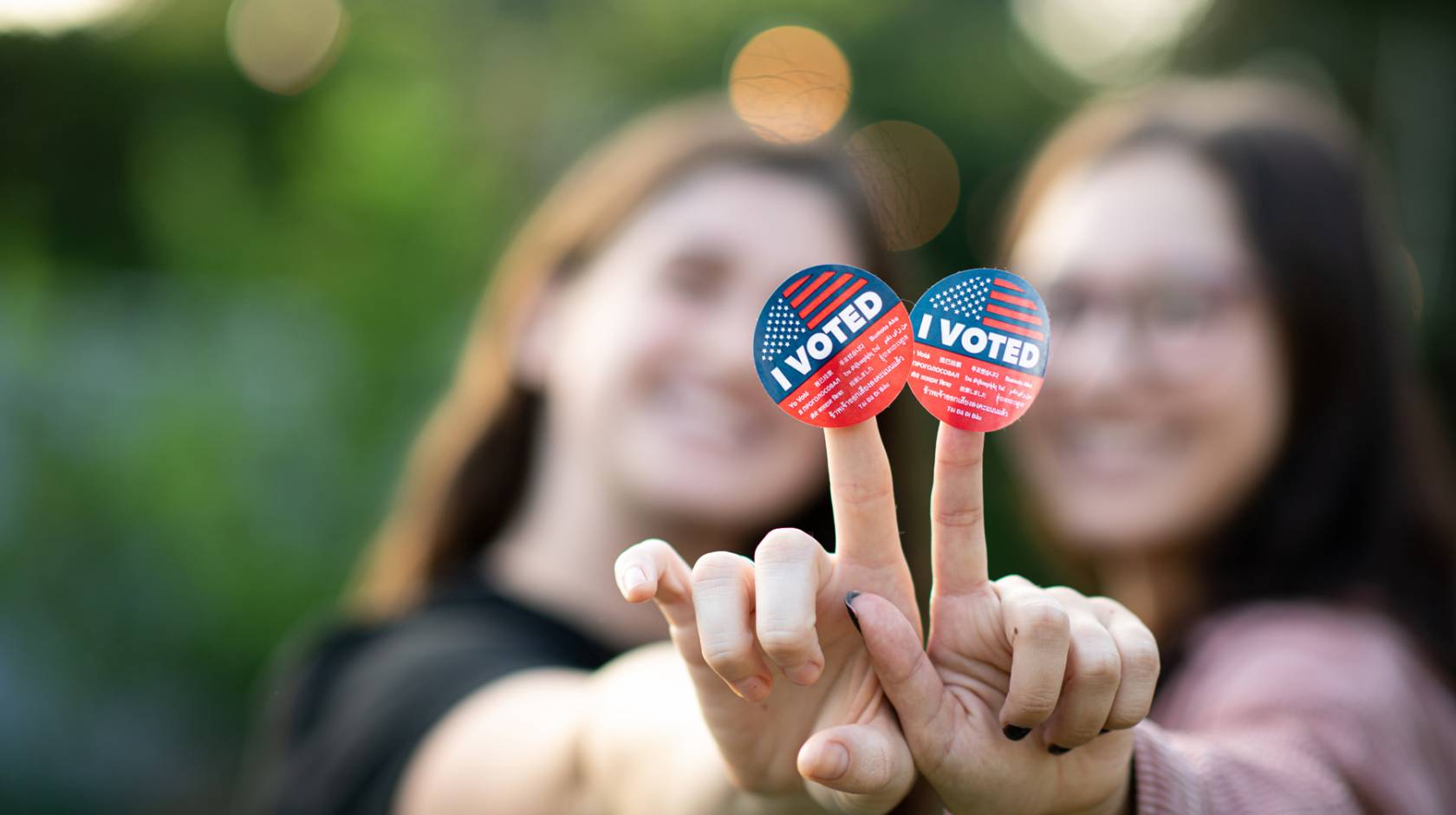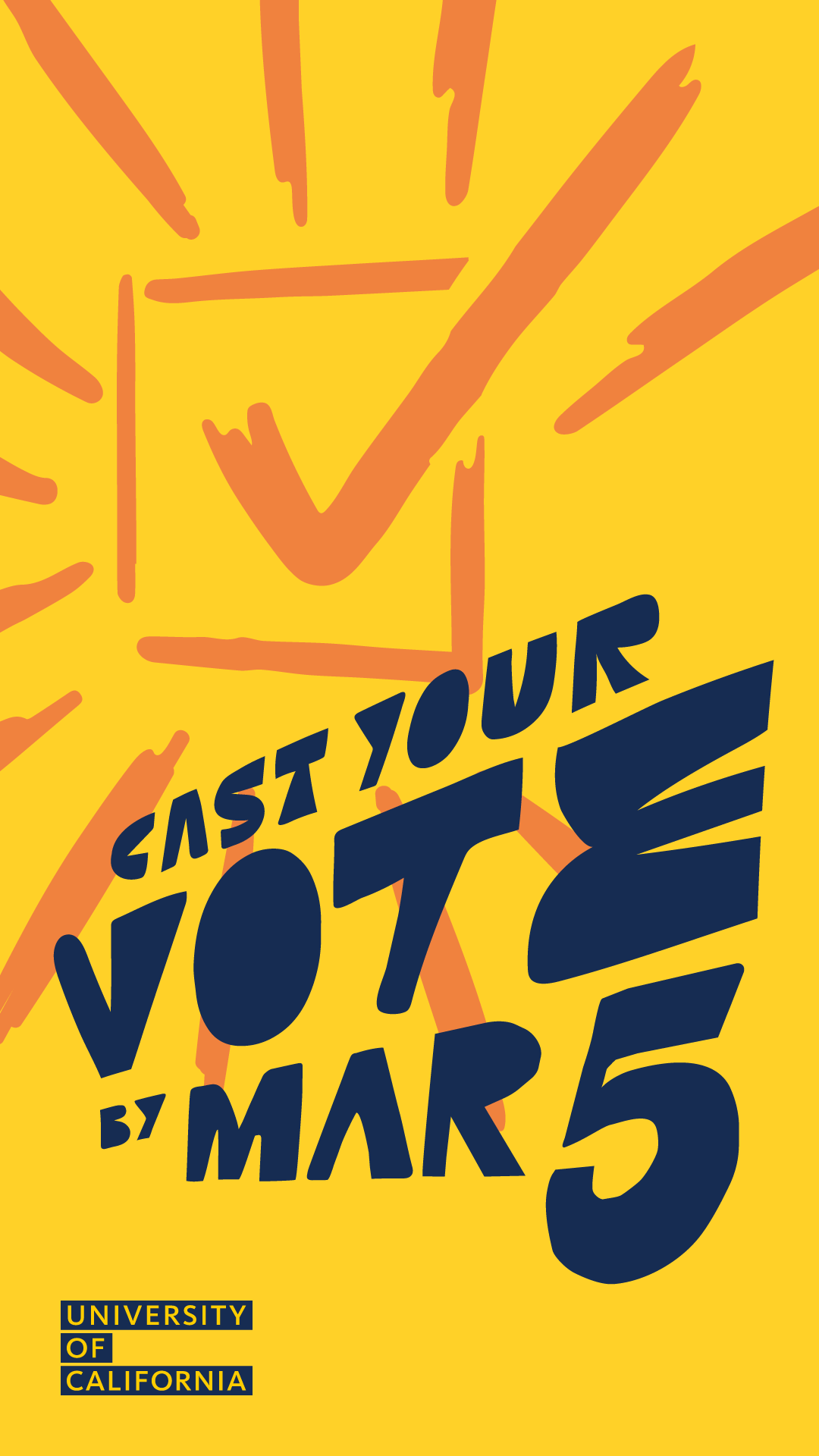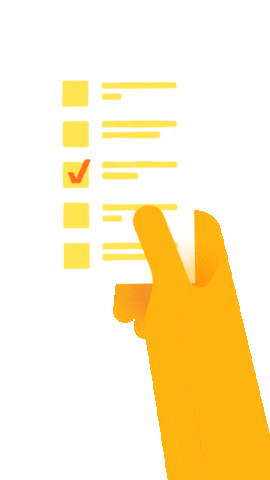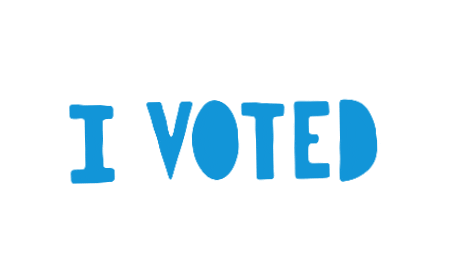UC Newsroom

Thousands of California voters have already mailed in their ballots ahead of the March 5 presidential primary. Now, they’re waiting to learn the results of the big electoral contest known in political circles as Super Tuesday, when voters in one U.S. territory and 15 states, including California, hold their presidential primaries.
But if you’re not one of those eager, early voters, don’t fret. There’s still plenty of time to decipher what’s on your ballot and make your voice heard.
We’ve got nonpartisan resources that can help you get up to speed on the candidates and issues, along with some last-minute tips for ensuring that your vote counts.
Missed the voter registration deadline? Don’t sweat it.

In California you can still cast a provisional ballot in person on Election Day even if you didn’t register by the Feb. 20 deadline. Your ballot will be counted just like every other ballot once officials have confirmed your eligibility to vote.
To participate in conditional voting, go to your nearest polling place on March 5 between 7 a.m. and 8 p.m. and ask for a provisional ballot. You can track that your ballot was counted by signing up here: www.sos.ca.gov/elections/ballot-status
Registered but haven’t voted yet? No problem.
If you already registered to vote and received a ballot in the mail, congrats! Now comes the fun part — casting your vote.
Once you’ve made your choices and filled out your ballot, be sure you sign the return envelope before dropping it in a mailbox. No stamps needed. It just needs to be mailed by Election Day.
In addition, every UC campus has a ballot drop box location, or you can drop it off at a convenient polling place on Election Day before the polls close at 8 p.m. If for some reason you never received a ballot by mail, just go to a polling place on Election Day and ask for a replacement.

Learn more about voting by mail or in person
Find a ballot drop location near you
Find your nearest polling place
Feeling overwhelmed by the ballot itself? We got you.
The race that is top of mind for many voters is the contest to determine the presidential nominee for each political party. With voters in 15 states and one U.S. territory, American Samoa, casting ballots in the presidential primary, the results of Super Tuesday will give a strong indication of the likely presidential nominee for each political party.
Beyond those contests, there are lots of other races and issues that matter. One of the best places to start is the California voter guide and sample ballot. It details statewide candidates and ballot measures, along with arguments, organizations and major donors supporting each side.
Why California voters will vote twice in the race for U.S. Senate
This March, voters in the California primary will be making just two big statewide decisions.

The most hotly contested of those is for the U.S. senate seat that had been filled by Dianne Feinstein until her death in September. The office has been temporarily filled by Sen. Laphonza Butler, who has opted out of the race.
Voters will be asked to choose candidates for that seat twice: Once to determine who will fill out the remainder of Feinstein’s unexpired term, which ends on Jan. 3, 2025. And again, to determine who will serve the full six-year term, from Jan. 2025 through Jan. 2031.
The only other statewide measure on the ballot is Proposition 1, which, if approved by voters, would authorize a $6.4 billion bond to expand the state’s mental health and substance abuse treatment infrastructure.
A great nonpartisan resource for information on both those races, along with information on the local and regional races on your specific ballot, is Vote 411, a service from the League of Women voters that provides detailed ballot information based on your location.
Seek out endorsements from organizations that share your views
Another great option for brushing up on the ballot is by checking out what local news outlets have to say. And checking for endorsements from the local chapters of advocacy organizations that you support. And don’t be afraid to talk with your classmates, including the many UC student organizations that are hosting political forums and speaking out about the issues.
The bottom line: Don’t sweat it, just vote
If you’re still feeling uncertain about some of the people and issues on your ballot, give yourself a break. You don’t have to vote on every issue. Just vote on the issues you know and care about. You can still have a positive impact, but only if you flex your political muscle and cast a ballot.

